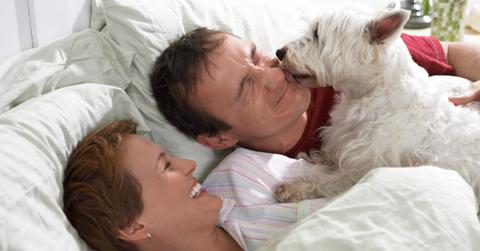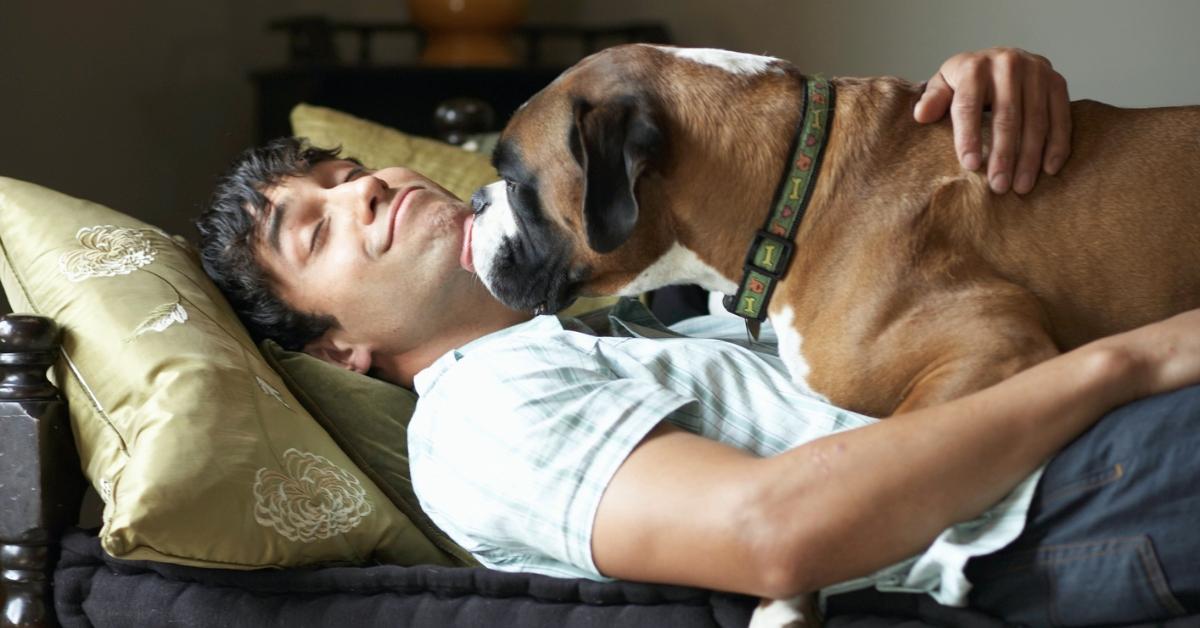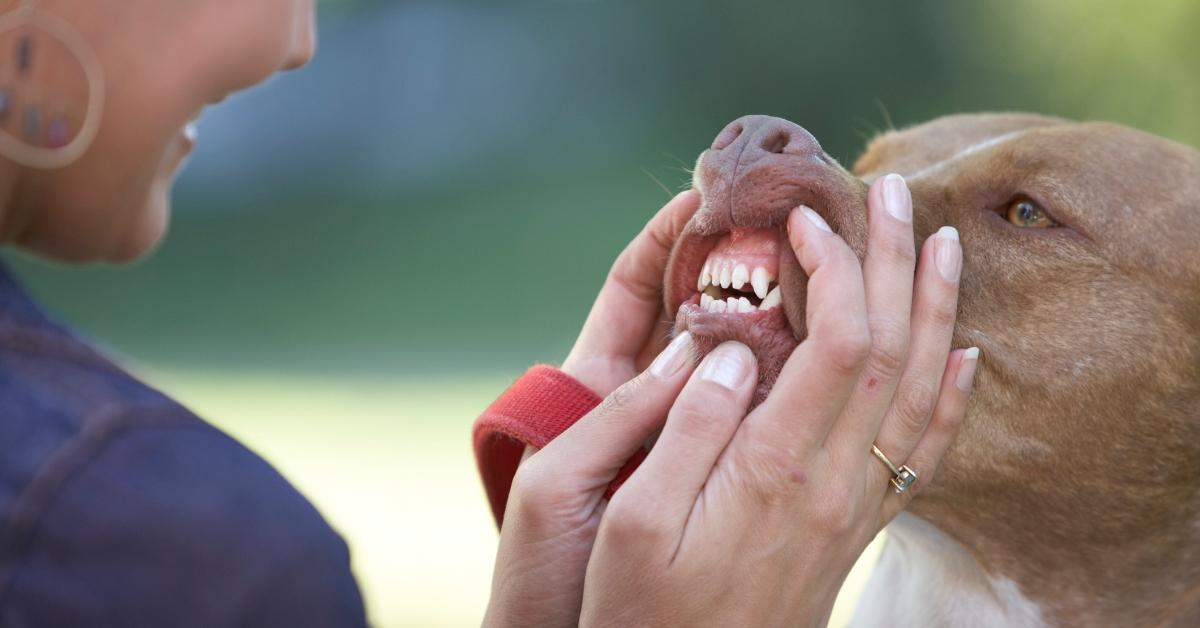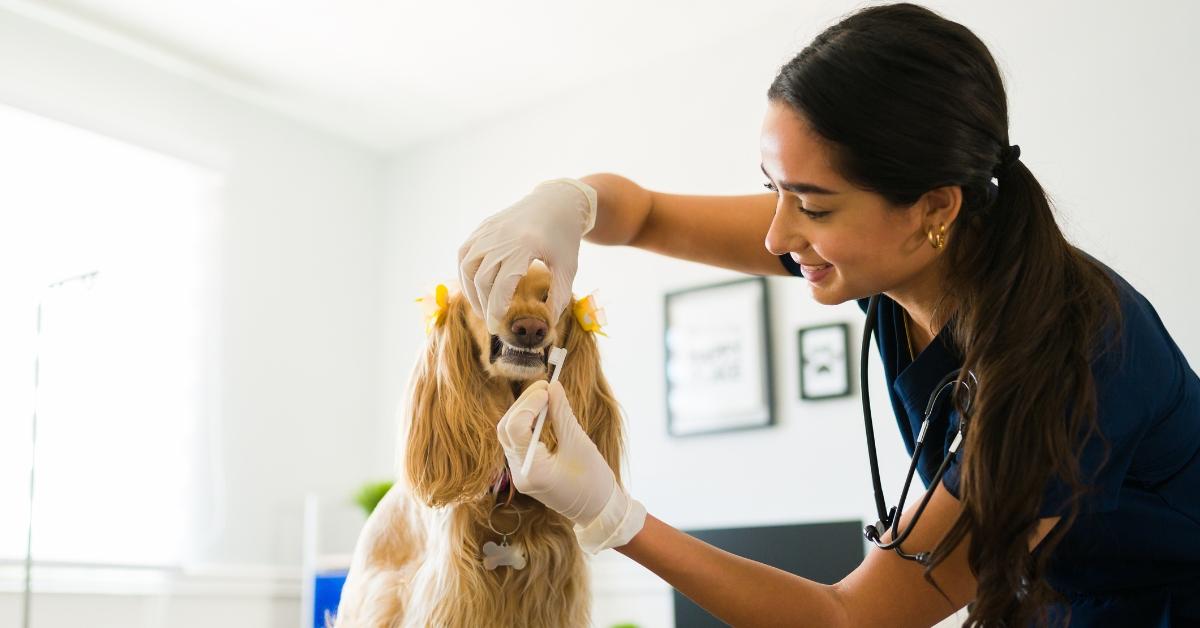Canine Kisses: Are Dogs' Mouths Really Clean? Let's Investigate
Published Nov. 28 2023, 4:53 p.m. ET

The Gist:
- Contrary to popular belief, dogs' mouths aren't clean.
- Dogs have an estimated 600 different types of bacteria in their mouths.
- You should clean your dog’s mouth and teeth regularly, or seek out vet services that can also keep your pup's teeth pearly.
A dog’s mouth cleans itself every 28 seconds. At least, that’s what dog lovers will tell you. They may even say Fido’s mouth is cleaner than your own. But is that true?
Dogs are known to eat a lot of gross things, including dead animals and other dog’s poop. With that in mind, are dogs’ mouths really clean? Let’s look into this subject and see what the experts say.

Are dogs' mouths clean?
No, dogs’ mouths aren’t clean. That’s easy to figure out if you’ve ever smelt a dog’s breath, which can be pretty stinky, especially if their teeth haven’t been cleaned regularly. Even if you keep up on your dog’s oral health care, they still have about 600 types of bacteria in their mouths, according to Ferguson Animal Hospital in North Providence, RI.
However, you don’t have to worry too much about getting germs when your dog licks you. The Ferguson Animal Hospital notes, “the chance of germs being transmitted to humans through a dog’s saliva is extremely minimal.”
It's a different story if a dog bites you, which could transmit the bacteria into your bloodstream. The Cleveland Health Clinic explains that roughly half of dog bites introduce bacteria into your body, so it's important to seek medical attention as soon as you've received a bite — lest you get an icky infection. Also, make sure you're up-to-date on your tetanus shot!

When it comes down to it, although dogs’ mouths aren’t necessarily clean, you’re less likely to get sick from a dog kiss than you are from another human, because the bacteria in your dog's mouth is not "zoonotic," meaning infections spread between humans and animals, as per the American Kennel Club.
However, according to Live Science, dogs and humans have some overlap of bacterium in their mouths, but it's just different enough to cause problems.
Here's how to clean a dog's mouth.
You can reduce the amount of bad bacteria in your dog’s mouth by taking care of their dental hygiene starting when they are puppies. According to PetMD, there are several additional things you can do to care for your dog’s teeth. Here are some steps to take:
Brush their teeth - Most pet supply stores carry toothpaste made especially for dogs that come in flavors they’ll love and are okay for them to swallow (no rinsing needed). Depending on the size of your dog, you may be able to use a normal, inexpensive toothbrush.

Schedule annual dental appointments - Just like people, dogs need to have their teeth cleaned by a professional at least once a year to clear any tartar buildup missed when brushing your teeth.
Dental chews can help - Many dog treats on the market help prevent tartar. PetMD recommends choosing treats that have a Veterinary Oral Health Council Seal of Acceptance.
Consider dental health additives - There are dental powders and water additives available that are safe for your dogs and can help prevent plaque buildup.